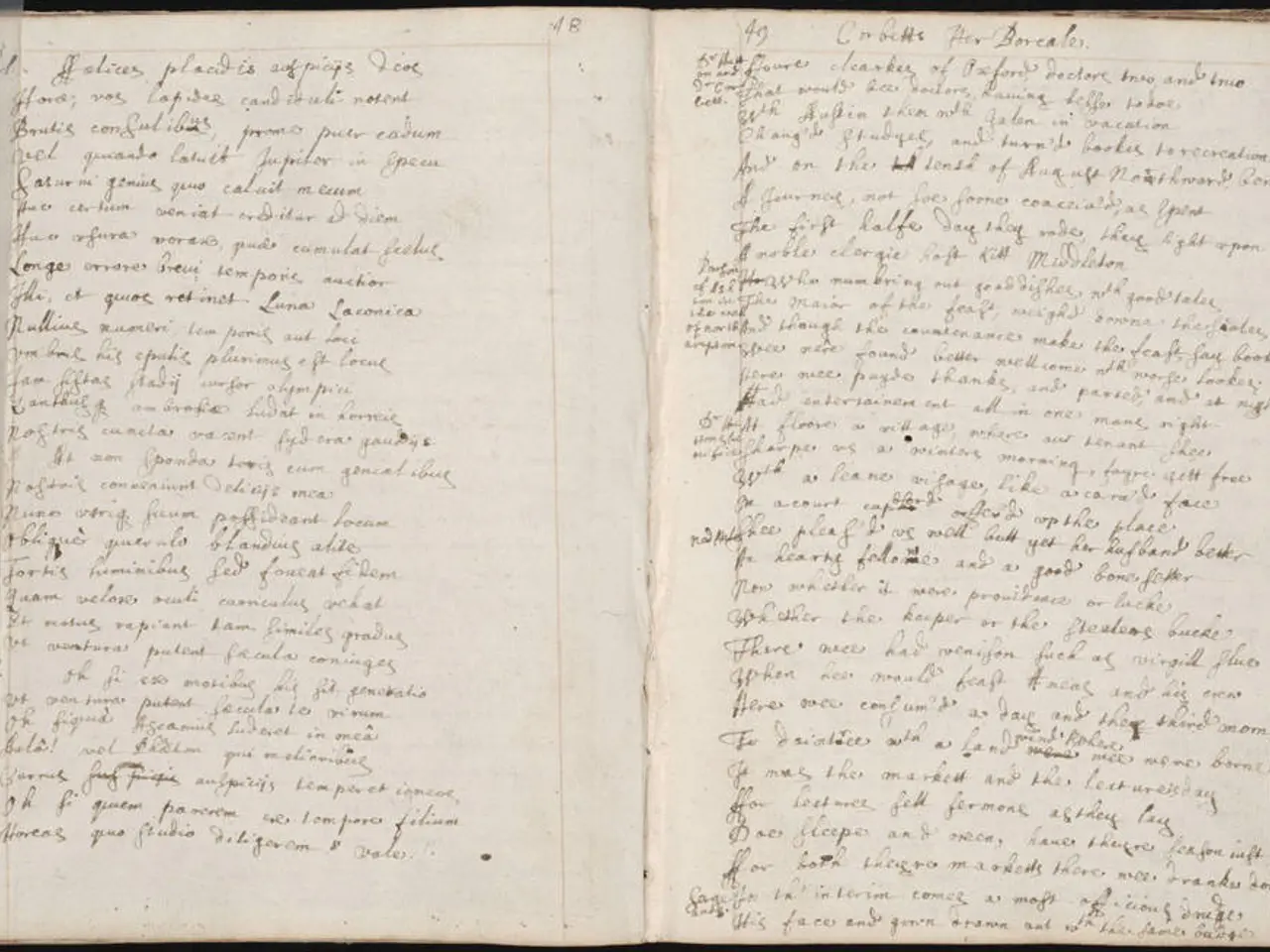Edith Stein's Intellectual Journey: Bridging Reason and Compassion - A Thought Leader for Modern Times
Edith Stein: Bridging Philosophy and Spirituality
Edith Stein, a prominent figure in European intellectual history, is renowned for her unique synthesis of 20th-century phenomenology and classical Christian mysticism. Born a Jew, Stein converted to Catholicism and became a student of Edmund Husserl, the founder of phenomenology. Her philosophical works, deeply infused with Christian empathy and mysticism, have shaped the course of modern philosophy and theology.
Stein's writings do not speak the language of fashionable theories but instead resonate with truth, precision, seriousness, and a lack of pretension. In her, reason and faith, thought and being, life and death merge. Her philosophy transcends modern rationalism's subject-understanding, viewing man as essentially relational.
One of Stein's most significant contributions is her empathy theory, which is about metaphysical openness, not just psychological empathy. This theory emphasizes setting aside biases to truly encounter others empathetically, fostering genuine interpersonal and spiritual connections. For Stein, empathy is a process in which the foreign becomes revelation in the self.
Stein deepened phenomenology by emphasizing "phenomenological openness," which involves setting aside biases to truly encounter others empathetically, fostering genuine interpersonal and spiritual connections. This approach is reflected in her mystical Christian outlook, where compassion is seen as "suffering with" others, essential to authentic empathetic bonds that extend beyond human relationships to include the divine.
Stein's philosophy went beyond Husserl's focus on "pure description" of consciousness. She sought the ontological basis of consciousness, exploring the relationship between I and Thou. Her ontology is not abstract but is carried by a personal metaphysics, viewing Being as gift and grace.
Stein's works, such as "Finite and Eternal Being" and "Science of the Cross," synthesize scholastic thought, particularly Thomas Aquinas, with modern phenomenology. Her philosophy offers a way for people today to think without succumbing to relativism and to believe without becoming fundamentalist.
Edith Stein's impact on European intellectual history is significant in several respects. She represents a unique synthesis of 20th-century phenomenology and classical Christian mysticism, influencing both religious philosophy and spiritual thought in Europe. Stein's emphasis on empathy and intersubjectivity contributed to later developments in existentialism, feminism, and ethics, foregrounding the personal and communal aspects of human experience.
Her tragic death in Auschwitz as a Jewish convert and Catholic martyr underscores the intersections of faith, identity, and historical trauma in European intellectual and cultural history. Stein’s philosophical contributions have inspired "Steinianism," a school that combines phenomenological analysis with Christian existentialist themes, influencing contemporary Thomist and phenomenological scholarship.
In summary, Edith Stein's philosophical and spiritual significance rests on her pioneering of a phenomenological method deeply infused with Christian empathy and mysticism, shaping European intellectual history by bridging modern philosophy and classical theology while addressing fundamental human and divine relationships. Stein was a philosopher, Jew, Christian, and martyr, whose life and work continue to inspire and challenge thinkers today.
Education-and-self-development was a lifelong pursuit for Edith Stein, as evidenced by her conversion to Catholicism, her extensive studies under Edmund Husserl, and her ongoing synthesis of 20th-century phenomenology and classical Christian mysticism. Personal-growth, for Stein, extended beyond intellectual pursuits, encompassing spiritual development and genuine empathy towards others, essential for both interpersonal relationships and authentic connections with the divine.




